Can you tell us a little about yourself and your lifestyle? (Where are you based, how do you travel or live, and what’s your day-to-day like?)
My wife (Ki) and I really enjoy roaming off-grid to camp in remote locations. As our kids successfully launched into their own lives and Ki and I retired, we had more time to travel for weeks or months, not days as in the past. We found 4X4 truck campers give us the greatest capability to get to those remote areas. We spend about 6 months a year traveling in our truck camper, which we call "Oso". When not doing that we have property in Encinitas, California and Parker, Arizona. We use these locations to store and work on our truck camper and as launching points between adventures. When home we catch up on bills, doctor visits and anything we can’t do remotely from the road. When on the road we try to live by the 3/3/3 rule. That means driving less than 300 miles each day, with no more than 3 hours each behind the wheel and getting off the road by 3pm to learn about and enjoy wherever we stop.
Where do you currently use your Cuddy Composting Toilet? (Van, boat, cabin, tiny home - tell us about your space and how it works for you.)
We use our Cuddy in our truck camper. We choose it based on its price, form, fit and function. We love it!! It’s super convenient, takes up way less space and smells less than our old black water toilet. It stores under a bench seat and is simple to pull out and use. We employ coco core for composting and depending on our trip duration we leverage either the “mixer” bin for longer trips (1 month or more) or the “catch” bin for shorter adventures. While we still need to dump the liquids regularly we get up to 2 months of use from our bin before needing to change it out, which is simply dumping it out legally on a tree, shrub or waste can (similar to dumping cut grass from a lawn mower)



What’s your morning routine like when you’re off-grid or on the move? (From breakfast to fresh air - what helps you start the day?)
We typically wake up NLT ~7am, start the kettle and check our messages then make a quick breakfast before we head out for a morning stretch or some form of easy exercise to get us moving. Next we use our cuddy as necessary, tidy up the bed and camper and try to complete any “must dos” or drive miles so we have the rest of the day to relax and enjoy where we are at.
Coffee or Tea?
Both! Ki alternates while I always coffee-up in the AM. Later in the day we both like green tea and sometimes a little chamomile tea before bed.
What are the top 3 things you always keep in your bag or close at hand? (These could be practical, personal, or just plain useful.)
Baby wipes, "cheater" glasses and a water bottle.
What do you listen to while you travel - music, podcasts, or something else? (If you have a favorite playlist or artist, feel free to share.)
We really like to tune in local stations, especially in small towns or more remote areas to pick up on whatever is happening where we are at or heading into. We are also Spotify freaks. We have numerous play lists across different genres of music and performers. I am more old school “British Beat” like Cake and “Grunge” like Green Day. Ki is much more eclectic based on her mood with her main listening being songs she can sing to, especially female vocalists from Aretha Franklin to Stevie Nicks or Linda Ronstadt. We both also like PODCAST about science, technology and history (e.g. Unsung Science, SCiFRi, Undecided, and History that Doesn’t Suck).
Why did you choose a composting toilet? (What made you decide it was the right fit for your lifestyle?)
As we roamed further off grid we found one limiting factor was what to do with our human waste e.g. “black water”. Dumping black water tanks legally is a challenge when traveling to remote location where dump stations don't exist. This is especially true in Mexico and Canada where dump stations typically don't exist at most camp grounds let alone in remote areas. As we stayed off grid for longer this became a bigger and bigger problem. Not wanting to compromise our desire to "get out there" we researched and tried lots of alternatives from rimed buckets with kitty litter to expensive and complicated composting systems that burn or seal the waste. After we did the research we realized a composting toilet would solve our problem. We checked out lots of composting options and after looking at many and talking to the manufactures and users we choose Cuddy's composting toilet based on price, form/fit and function. It was simply engineered better and was much easier to use and store compared to the other composting toilets. Further, the customer service and continual product support and improvement is amazing.


Has switching to a composting toilet changed anything for you? (Feel free to share the good, the unexpected, and everything in between.)
Yes, our Cuddy has made us more aware of our personal waste footprint and the effect we can make through simple choices like composting.
Not only does our Cuddy composting toilet enable us to stay off grid longer as there is no requirement to find, stop and pay for dumping our waste. Composting saves 1-2 gallons of fresh water per flush keeping that in our fresh tanks for better uses (like drinking or cooking). Composting also reduces wear and tear on our vehicle eliminating the ~400lbs a full 30 gallon black tank weighs, which also improves our vehicle fuel economy and range as we are not carrying all that system and waste around. Neither do we have to carry the chemicals to treat our system before/after dumps, nor do we have to worry about freezing weather and its effect on our system functionality or pipes bursting. We also enjoy the additional open space “created” in the camper by not having a dedicated toilet space (usually occupying a valuable corner spot that becomes shared with the shower creating a wet toilet to sit on and/or a storage space where you have to dry and/or move everything out before you use the toilet). Also who actually wants to dump a black tank…yuck!
In addition, using our Cuddy composting toilet has made us more aware of how we manage our non “biologic” waste like paper, plastic and food. Less than 50% of the world has the infrastructure to safely treat human waste and clean drinkable water is key to survival for all of us. Realizing that the average person flushes over 3-thousand gallons (>11-thousand liters) of fresh water each year using traditional toilets is something composting directly eliminates. Further, while Ki and I are the definition of fiscal frugality we now realize spending a few cents more to buy products with less wasteful packaging, especially plastics, directly benefits us in that it reduces how fast our waste basket fills up, reducing our stops simply to dump the trash. Rarely do you find public (or private) waste cans when camping remotely which forces us to carry all the trash we generate for however long we are away. This simple decision has also influenced our choices when buying at home even with weekly trash pick up. We now track and take great pride in not filling our trash cans every week . When it comes to waste.. “less is better”.
What does “JustGo” mean to you? (We see it as freedom to explore, but we’d love your take.)
I think the general term, relates to encouraging people to take personal action, pursue their dreams, do what they think is right and stop over-thinking decisions, complicating things or relying on others (social media, corporate institutions, government or religious entities) to tell you what to do, how to think or feel about the decisions that are yours to make.
Do you have any advice for someone just getting started with off-grid living or composting toilets? (Think: things you wish you’d known or tips for beginners.)
- Fresh potable water is key. Whether you're pursuing off grid living, traveling or growing your own food; without easy, affordable access to drinkable water it will be challenging. So start with how to manage clean water first when dreaming or designing any system or process.
- Similar to “JustGO”, you learn more from doing, making mistakes and determining what is really important to you by experiencing it than studying it, watching social media or listening to others talk about it. There is no "perfect" RIG, time and the experiences it provides you is your most precious resource (not money). Don’t wait, get out there and find your experience in whatever you have, make mistakes fast, learn from them, find simple solutions and what you can and can’t live with. Adapt or change your platform, practices or environment as you discover what makes you happy.
A lesson you’ve learned on the road or living simply:
Whether you're camping in an Expedition Truck from Germany or a tent from Wal-Mart, whether you’re politically conservative or liberal, whether you're religious or an atheist, whether you’re rich or poor; we have more in common with each other than differences. Talk with one another, do your best to be respectful, share your experiences and try to learn from others experiences. In the end appreciate the differences in each of us, don't denigrate them. Realize if we were all the same it would be a boring place and you'd never be surprised by anyone.
A location or moment that stands out:
End of the Dempster HWY eating whale stew on the Arctic Ocean Tuktoyaktuk, NT, Canada
One small thing that makes a big difference for you:
Hanging around positive people
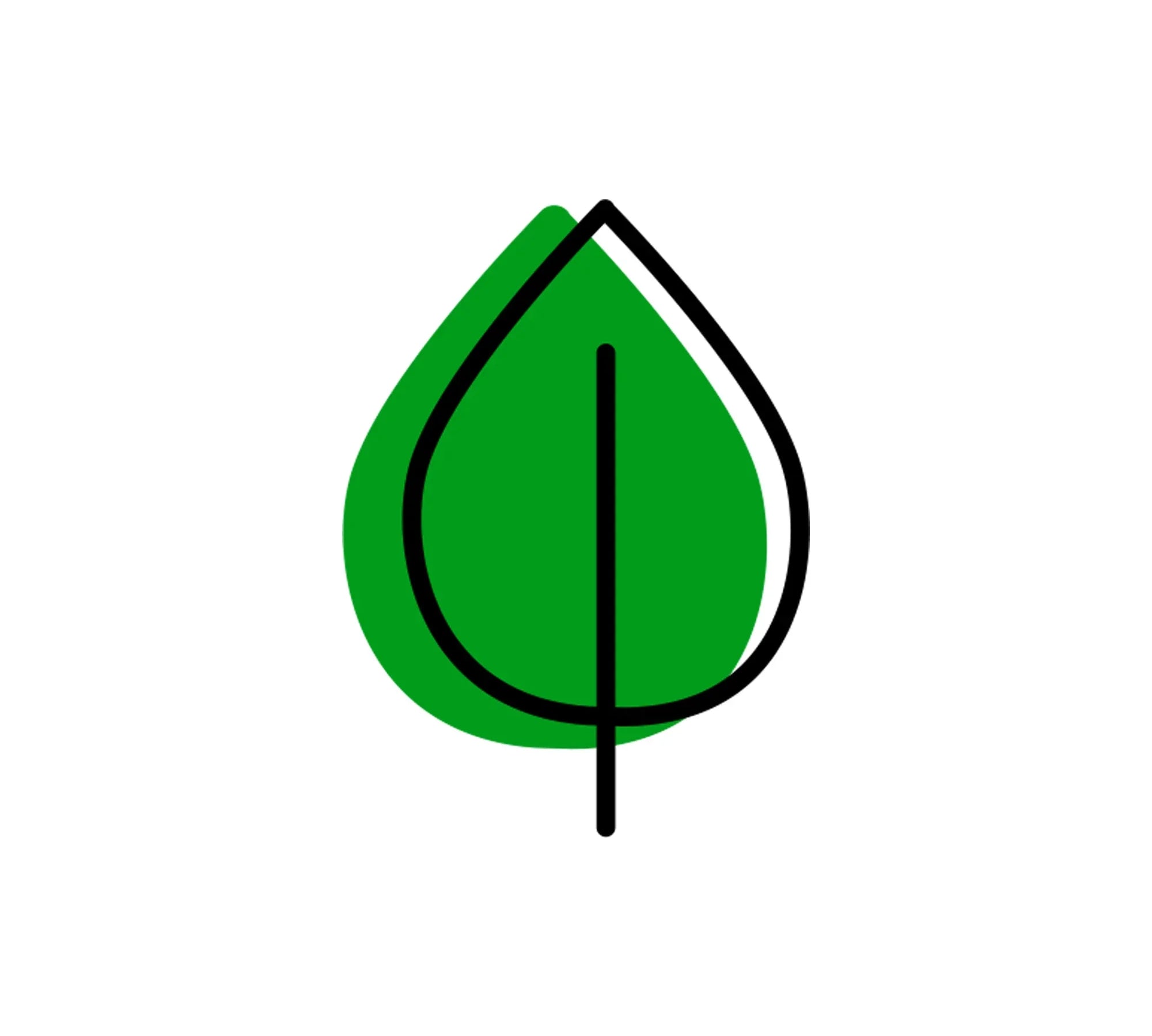
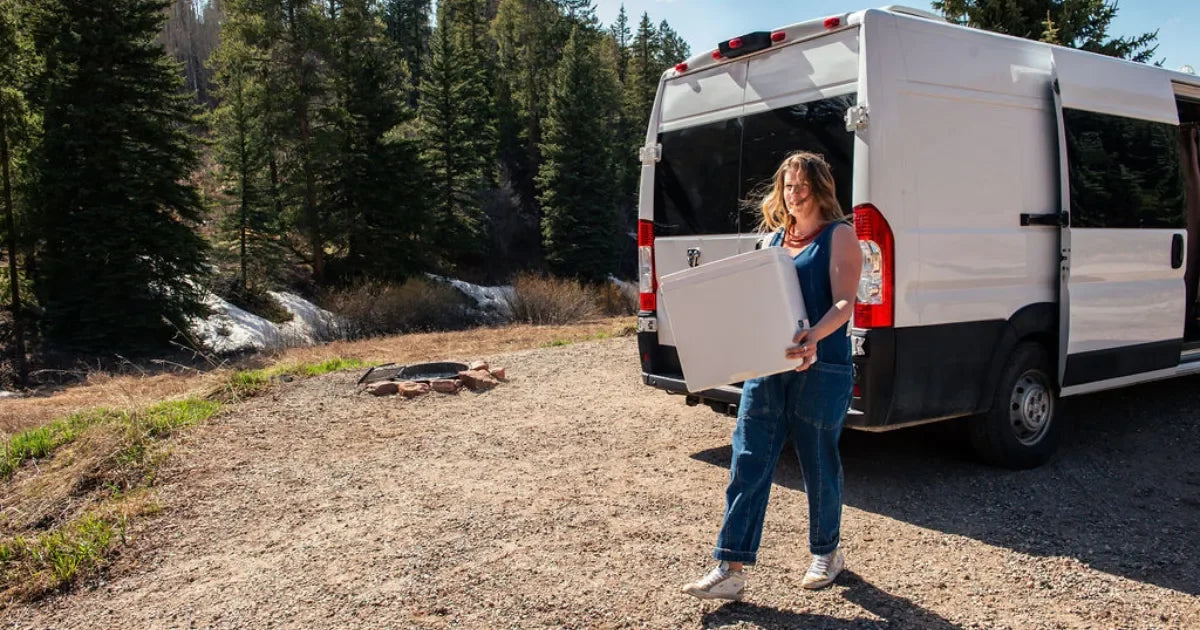
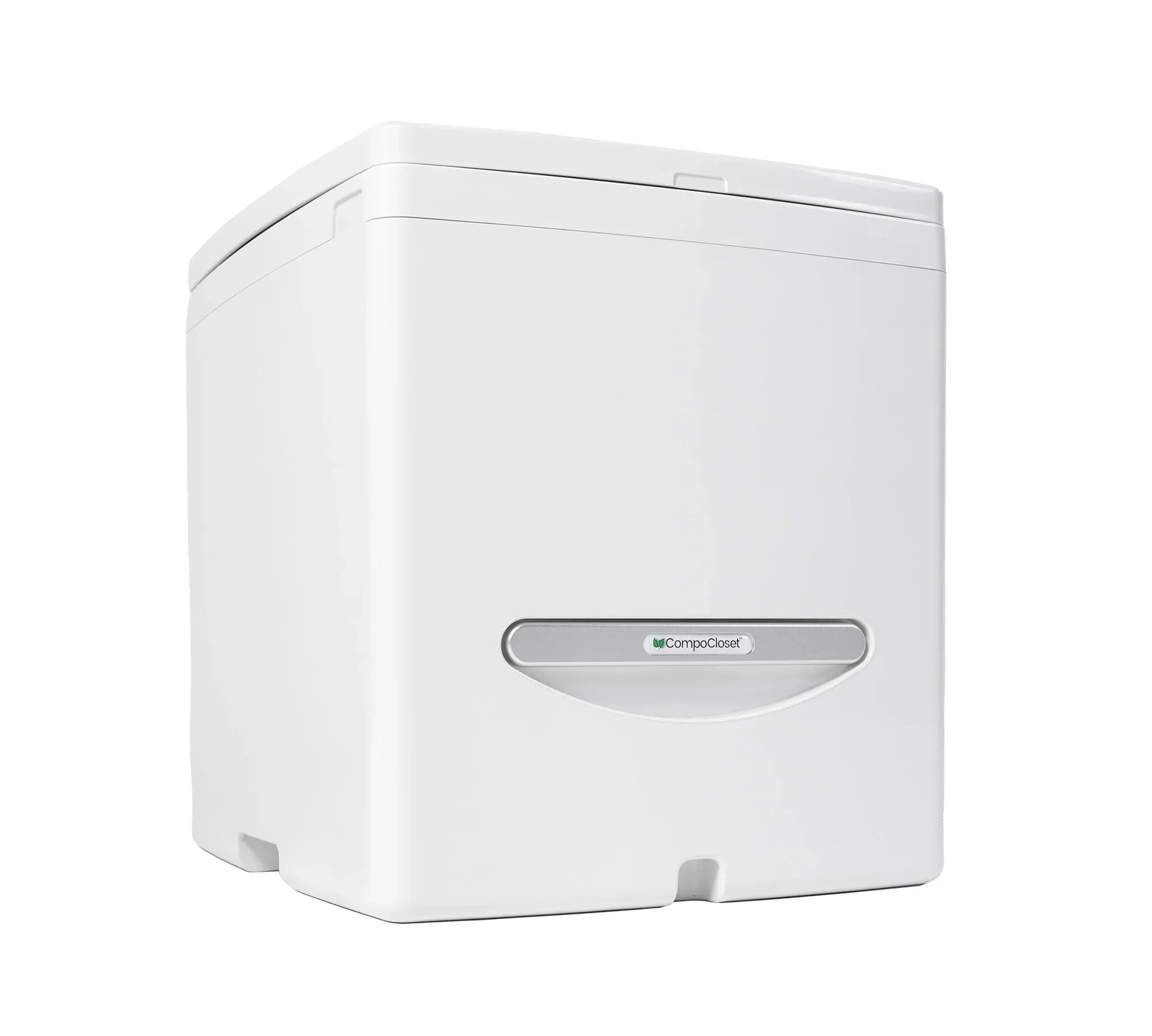
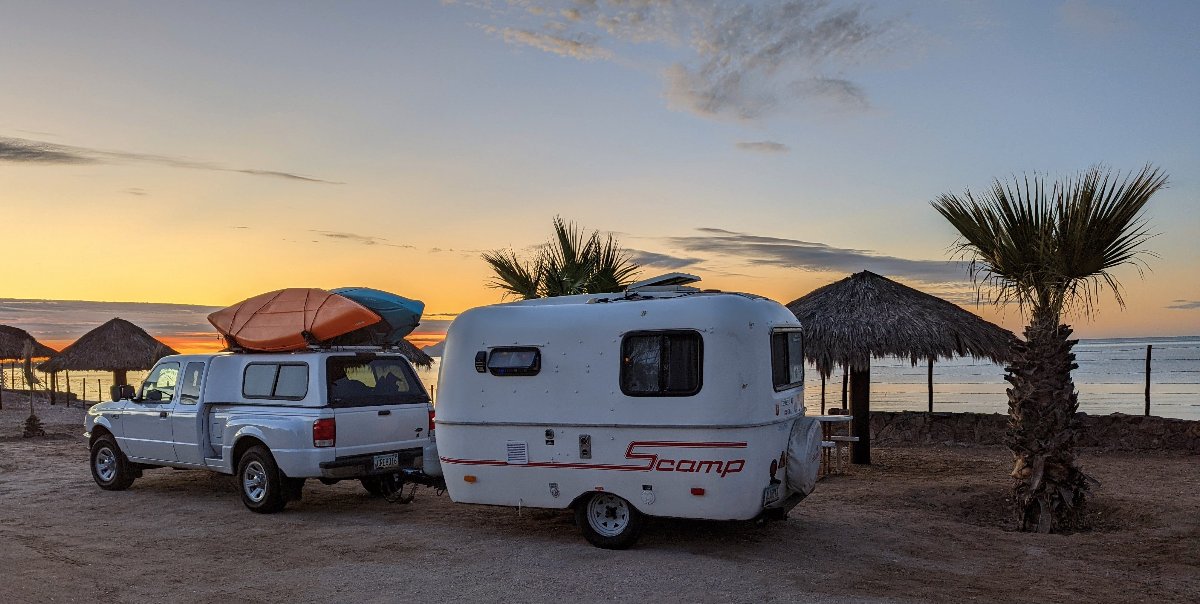




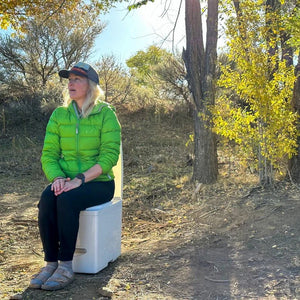
 https://compocloset.com/pages/erica-pugh
https://compocloset.com/pages/erica-pugh
